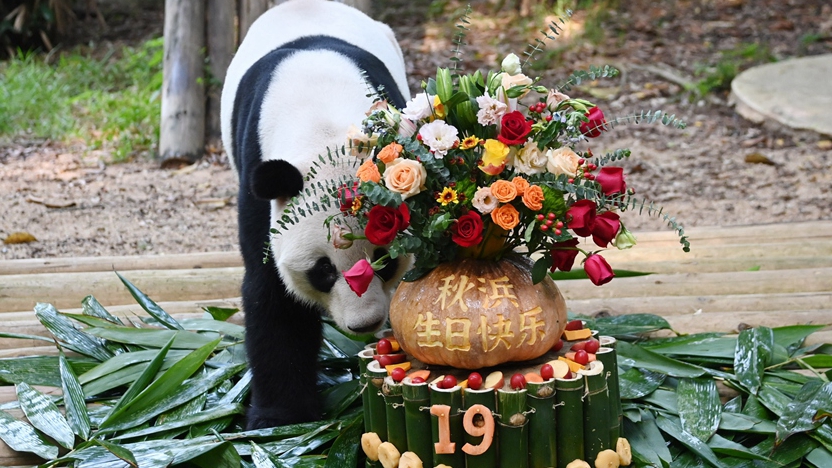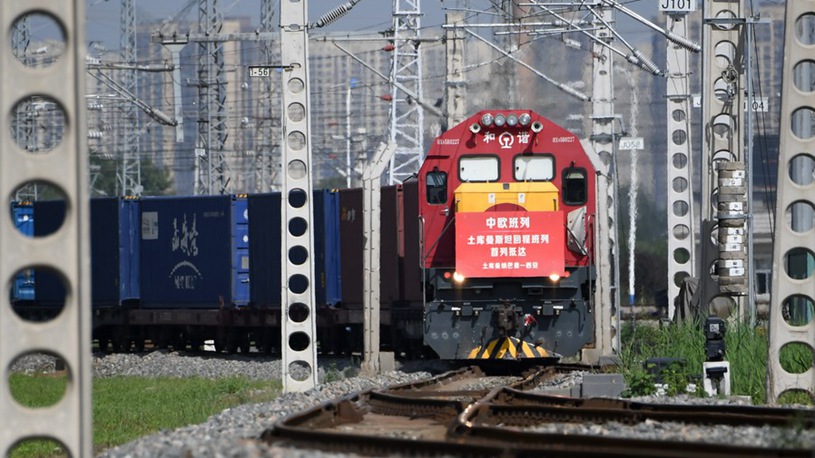China's anti-corruption endeavor yields tangible results in past decade
BEIJING, Sept. 19 (Xinhua) -- China's top anti-graft body announced Monday that Sheng Guangzu, former secretary of the leading Party members group and general manager of the previous China Railway Corp., had been expelled from the Communist Party of China (CPC) for severely violating the Party's discipline, committing duty-related offenses, and being suspected of taking bribes.
In line with Party regulations and laws, a decision has been made to also revoke the benefits he enjoyed, confiscate his illicit gains, and hand over his case for judicial proceedings.
The punishment Sheng received is another manifestation of the CPC's unyielding determination to discover and eradicate corruption, a process that has picked up steam since about a decade ago.
Over the years, the CPC has been tackling corruption with swift and resolute measures. With these efforts, the Party and the government were able to improve morality, integrity, and ensure their close ties with the people are well-maintained.
COMBAT CORRUPTION ACROSS THE BOARD
"In the new circumstances our Party faces many severe challenges as well as many pressing issues within the Party that need to be addressed, particularly corruption, being divorced from the people, and being satisfied merely with going through formalities and bureaucracy on the part of some Party officials," said Xi Jinping on Nov. 15, 2012, soon after he was elected as the general secretary of the CPC Central Committee.
"We must make every effort to solve such problems," he added.
In the years that followed, the CPC's actions continued to live up to Xi's words. According to the country's statistics, since the 18th CPC National Congress in November 2012, discipline inspectors across the country had dealt with nearly 4.4 million cases concerning discipline violations as of April 2022, in which 4.7 million people were involved.
The CPC also launched "fox hunting" operations to apprehend corrupt suspects who moved abroad to evade punishment. From 2014 to May 2021, 9,165 such suspects were extradited from 120 foreign countries and regions, and over 20 billion yuan (2.9 billion U.S. dollars) of their illicit gains were retrieved.
Meanwhile, to effectively enforce strict discipline regarding officials' conduct, the CPC established a complete set of mechanisms consisting of goal-setting, results evaluation and education.
At the end of each year, the Political Bureau of the CPC Central Committee holds meetings of criticism and self-criticism, so as to review the implementation of the Central Committee's Eight Rules on improving Party and government conduct. The Party also constantly launches education campaigns to inform party members of the necessity of improving conduct.
In the battle against corruption, an official's rank doesn't exempt him or her from being punished for corruption.
As illustrated by Xi, China's battle against corruption consists of both "swatting the flies" and "taking out the tigers," with "flies" representing low-ranking corrupt officials and "tigers" representing high-ranking ones.
Currently, an overwhelming victory has been achieved in China's fight against corruption. But the Party cannot rest on its laurels just yet. Instead, the war on corruption is a long-term endeavor.
The Party ought to consistently remove all elements that harm the Party's advanced nature and integrity and eliminate all viruses that erode its health, Xi said during the annual session of the National People's Congress in March.
ANTI-CORRUPTION FOR THE PEOPLE
As with many other endeavors of the CPC, the ultimate goal of the battle against corruption is to ensure that the Chinese people can live better lives.
Over the years, Chinese disciplinary authorities handled many cases in which low-ranking officials were involved in corruption activities. Though not as prominent as "tigers," their misdeeds often directly damage the benefits and interests of the people, and can thus be even more harmful at times.
Corrupt activities at community level sometimes take place in areas that matter the most to people's livelihoods, including poverty alleviation, education and environmental protection, among others. Hence, they have always been a prominent target in China's anti-corruption campaigns.
For instance, China took resolute measures to crack down on corruption that took place in the poverty-alleviation sector. From 2017 to 2020, about 330,000 relevant cases were handled by disciplinary authorities.
Besides these corrupt activities, another type of corruption that the public despises the most and the government takes seriously is the type where officials collude with organized crime gangs and provide protection. Since 2018, nearly 90,000 such cases were handled.
Most notably, following a violent case of assaulting women which took place in June in Tangshan, Hebei Province, disciplinary investigations were carried out to reveal a possible "protective umbrella" that sheltered the assailants. The investigations found eight personnel holding public office to be involved in violations of discipline and law, suspected abuse of power, and bribery.
With solid efforts to address people's needs yielding tangible results, China's anti-corruption efforts have won the understanding and support of the people.
According to the National Bureau of Statistics, in 2020, 95.8 percent of people had full confidence in this work of exercising strict governance over the Party and curbing the spread of corruption.
Photos
Related Stories
- Xi Focus: Xi underscores improved capability in fighting corruption to ensure full victory
- More young Chinese want to be civil servants thanks to anti-corruption drive: The Economist
- Pressure still high on graft during supervision reform
- Former senior food, drug administration official arrested
- China nets 1,335 fugitives in global anti-corruption manhunt in 2018
Copyright © 2022 People's Daily Online. All Rights Reserved.









